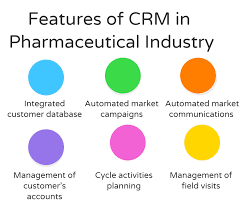The Pharmaceutical Customer Relationship Management Software Market analysis highlights how CRM systems are revolutionizing the pharmaceutical sector by streamlining communications with healthcare providers, patients, and distribution partners. Unlike traditional CRM solutions, pharmaceutical CRMs are designed to handle highly regulated data, such as prescription trends, patient adherence statistics, and healthcare provider feedback. Companies leverage these insights to create targeted marketing campaigns, enhance drug distribution efficiency, and comply with stringent regulatory requirements. As global healthcare digitization accelerates, demand for CRM software tailored to pharmaceutical needs has grown significantly. Cloud-based solutions, predictive analytics, and AI-driven personalization are making these platforms indispensable tools for pharmaceutical enterprises. This creates a competitive advantage for firms that integrate CRM software effectively into their operations, leading to improved decision-making, customer engagement, and operational efficiency.
The pharmaceutical industry’s transition toward value-based care has further boosted CRM adoption. Organizations now prioritize patient-centric strategies, ensuring that providers and end-users receive personalized engagement. CRM software enables pharma companies to track salesforce productivity, monitor product performance, and analyze prescribing behaviors. Moreover, advanced integrations with electronic health records (EHRs) and telemedicine systems enhance communication between stakeholders, ensuring timely interventions and better treatment outcomes. The evolving regulatory environment has also made compliance and transparency critical, and CRM systems are well-equipped to manage audit trails, consent management, and secure data sharing. With rising competition in generics and specialty medicines, CRM software provides differentiation by offering real-time data and actionable insights that support both operational and commercial excellence.
FAQ
Q1: What makes pharmaceutical CRMs different from traditional CRM platforms?
A1: They are designed to handle regulated medical data, integrate with healthcare systems, and support compliance requirements.
Q2: Why is demand growing for CRM software in pharma?
A2: Increasing digitization, regulatory compliance needs, and patient-centric healthcare models are driving adoption.
Q3: How does CRM support regulatory compliance?
A3: By managing audit trails, secure data sharing, and documentation for inspections.
Q4: Is AI impacting pharmaceutical CRM solutions?
A4: Yes, AI enhances predictive analytics, personalization, and salesforce optimization.

